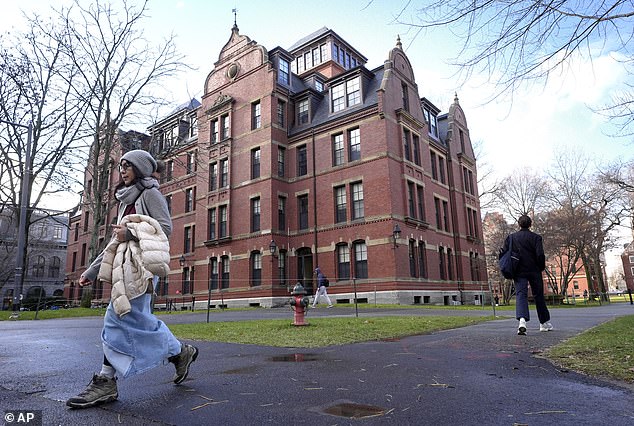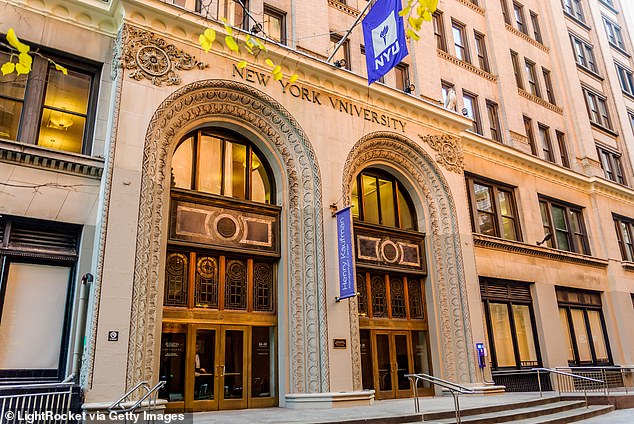Ivy Leagues tell foreign students to rush back from winter break before Trump can deport them
Some Ivy League schools are advising foreign students to return quickly from their Christmas vacation before Donald Trump becomes president and imposes travel bans.
Top institutions including Harvard and NYU have issued recommendations for international students in light of Trump’s promises to implement stricter immigration policies upon his return to the White House on January 20.
There were more than 1.1 million international students enrolled at U.S. colleges and universities last academic year, and many are now likely considering their future in light of the coming new regime.
“It’s a scary time for international students,” said recent graduate Pramath Pratap Misra, originally from India. CNN.
The 23-year-old earned a bachelor’s degree in political science this year from NYU – the school with the most international students in the US during the last academic year with 27,000.
Trump has promised to launch what he calls “the largest mass deportation in American history” during his second term.
Within hours of his inauguration as America’s 47th president, Trump is expected to sign a series of executive orders, including a radical move to close the border, citing an immigration crisis.
Trump has also pledged to expand his previous travel ban on people from predominantly Muslim countries and the revocation of student visas for “radical anti-American and anti-Semitic foreigners.”
Some Ivy League schools are advising foreign students to quickly return from their Christmas vacation before Donald Trump becomes president

Top institutions including Harvard (pictured) and NYU have issued recommendations for international students in light of Trump’s promises to implement stricter immigration policies upon his return to the White House on January 20.
Foreign students usually come to the U.S. on a nonimmigrant visa, which allows them to study in the country without establishing a legal path to stay after graduation.
The first Trump administration took steps to restrict entry of all non-US students and workers – and the issue of immigration is even more of a hot topic this time around.
Cornell University Office of Global Learning told students traveling abroad to return by Jan. 21 ‘communicate with an advisor about your travel plans and be prepared for delays.’
“A travel ban will likely come into effect shortly after the inauguration,” the university warned students in November.
The ban likely also applies to citizens of the countries covered by the first Trump administry: Kyrgyzstan, Nigeria, Myanmar, Sudan, Tanzania, Iran, Libya, North Korea, Syria, Venezuela, Yemen and Somalia.
“New countries could be added to this list, especially China and India.”
At the University of Southern California, which hosts more than 17,000 international students annually, students were advised to return to the US a week before Trump’s inauguration.
“One or more executive orders affecting travel… and visa processing” may be voidused, the school said.

NYU had the most international students in the US last academic year with 27,000
“While there is no certainty that such orders will be issued, the safest way to avoid any challenges is to be physically present in the U.S. before the spring semester begins on January 13, 2025.”
Harvard University’s International Office also advised students to “reserve time before the start of the semester, prior to the Martin Luther King holiday in January” to avoid disruptions or delays.
Wesleyan University also recommended that all traveling students return by Jan. 19 amid “uncertainties surrounding President-elect Donald Trump’s plans for immigration-related policies.”
NYU sent a reassuring email to students shortly after the November election, telling students that “as a global institution, we believe the cross-border mobility of our students and scholars is critical.”
“We will monitor all immigration-related proposals, laws and actions that may be of interest to our community,” the email added.
